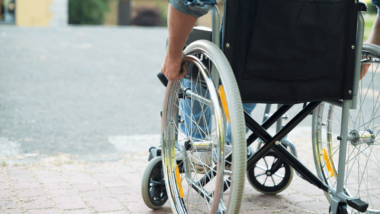Almost half of adults in Britain gambled in the past month, according to new statistics from the Gambling Commission.
The annual survey on gambling harm revealed that 2.7 per cent of adults in the UK (around 1.4 million people) experience problem gambling, an increase of around 100,000 from the previous year.
It identified slot machines and in-play sports betting – where customers bet on a sports game in real time – as particularly harmful.
Risk insights
Chief Executive of the Gambling Commission Andrew Rhodes said: “This year’s findings deepen our understanding of consequences from gambling and provide crucial insight into risk profiles among those who gamble most frequently.
“We strongly encourage operators to use this evidence to consider the risks within their own customer bases.”
He mentioned a number of measures that have been introduced to curb gambling harm, including light-touch financial vulnerability checks for those spending £150 a month, banning auto-play and slowing the speed of online games, as well as tightening age verification in betting shops.
Families torn apart
While the Gambling Commission said that the increase in problem gambling was “statistically stable”, Will Prochaska, the Director of the Coalition to End Gambling Ads, disagreed.
He stated: “The Gambling Commission releases these statistics as if nothing is wrong. But there’s something very wrong when over a million people have a gambling problem and millions more are being harmed.
“Families up and down the country are being torn apart to deliver profits for big gambling corporations. If we’re serious about addressing this crisis, we must start by banning gambling advertising.”
Devastating consequences
Research from the University of Glasgow has found a link between gambling harm and poor emotional wellbeing among individuals and their families.
It found “that people with a partner experiencing gambling-related harms tend to have poorer emotional wellbeing themselves, and that their wellbeing levels are substantially worse when their partner’s experience of gambling-related harms are more severe”.
Lead researcher Sarah Tipping said: “Research and policy haven’t really focused on the wider impacts that gambling can have, despite people who have experienced gambling-related harms highlighting the devastating consequences of gambling on their families.”
She explained that her work “highlights how the harms from gambling extend from individuals to those close to them, meaning the circle of influence is wider than is often understood”.
Care homes ‘left out in cold’ on assisted suicide Bill
Cancer patient outlives terminal diagnosis by 25 years so far


